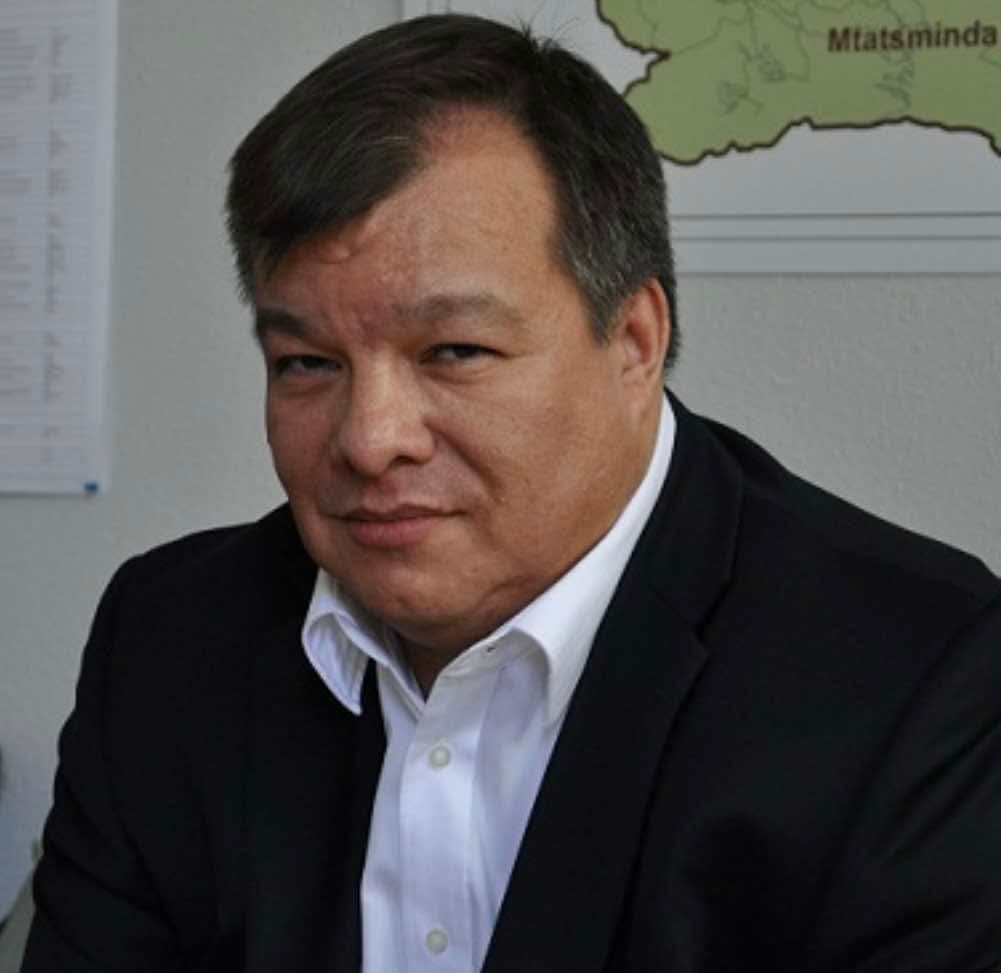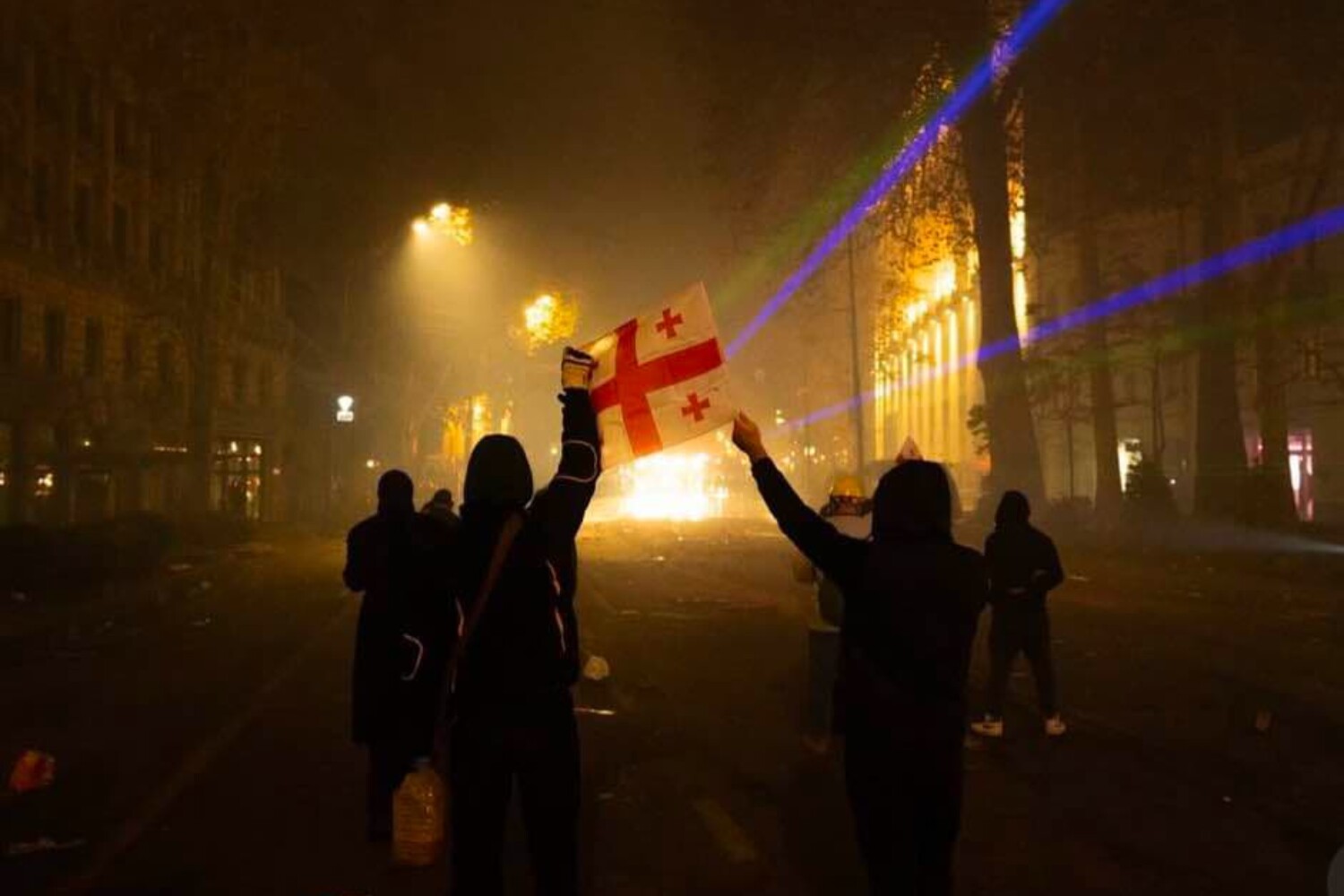© Photo Credit: Dato Koridze
The constitutional crisis in Georgia is best understood as a matter of time. Every night, for the past month, Georgians have taken to the streets, boldly, creatively and consistently challenging the legitimacy of the Georgian Dream ruling party, on both electoral and constitutional grounds, in order to affirm the national consensus of the past quarter century, in the words of the late Zurab Zhvania, “I am Georgian and therefore European.” President Salome Zurabishvili who has stood by the protestors, is supposed to step down when her term ends on Dec 29th, but she has said she will not make way for her parliamentary chosen successor, unless their legitimacy to govern, is established by new elections.
For the past dozen years, the billionaire oligarch Bidzina Ivanishvili has sought to control Georgian politics, from the Georgian Dream ruling party to the government, the judiciary, civil society, media and political opposition, for the sole purpose of protecting his financial interests, which aligns with the country in which he made his fortune, Russia.
As the final OSCE/ODIHR report on the Oct 26th parliamentary elections concluded, there is plenty of evidence to indicate that the nation’s voters were denied the opportunity to exercise their will through the ballot. However, while there have been calls by demonstrators, President Zurabishvili, and some European allies for new elections, the government has chosen to distort the report findings to affirm their victory. The popular and nationwide energy of the protests are the result of the ruling party saying they would suspend pursuing the EU’s offer of candidate status for membership until 2028 or 2030. The government has chosen to distort reforms that were a condition for their acceptance. Among the most glaring examples were in the context of achieving “depolarization”: passing a “foreign agents” law that treats domestic NGO funding by heretofore strategic allies of the West, as state threats; announcing their intention to ban all opposition parties, and prohibiting any criticism of the Orthodox Church, which has often buttressed the government’s right wing views on social issues.
During Ivanishvili’s successful 2012 campaign to win a parliamentary majority, Ivanishvili attacked international and domestic NGOs as agents of the incumbent government, and cast Russia as the victim of the Aug 2008 War, when it occupied 20% of Georgia’s sovereign territory. All of these actions have foreshadowed the current crisis.
As Prime Minister, Ivanishvili leveraged vigilantes to engage in violence against his opponents and the LGBTQ community; declared in an April 2013 press conference that having taken control of the government, he would seek to create a “constructive and agreeable” opposition; while his supporters incrementally took over control of the national television broadcasters and the judiciary from Saakashvili’s supporters. Most tellingly, Ivanishvili stayed in office until Saakashvili’s term of office ended near the end of 2013, and then resigned just days before his signature would have been necessary for the European Union’s Association Agreement with Georgia.
Since 2013, even though Ivanishvili hasn’t held public office since resigning as Prime Minister, the ruling party never denied his influence over all major decisions, and the international pilgrimages to his mansion, confirmed this informal understanding even as the formal diplomatic engagement with his lieutenants continued. Ivanishvili and his government’s attacks on the LGBTQ community and domestic/international NGOs, didn’t elicit any significant pushback from international partners in Europe and the US, and so emboldened them further to escalate their attacks, especially after Ukraine’s Maydan and subsequent first invasion of Crimea and the Donbas in 2014. Perhaps inevitably, Ivanishvili saw no downside to either having the bank he owns forgive all loan recipients just before the 2018 presidential campaign victory of the Ivanishvili’s endorsed and since disaffected, incumbent President, Salome Zurabishvili.
Beginning in 2020, when Ivanishvili got the US to switch out the career Foreign Service officer with deep experience in Georgia, for one with no experience in the region, the hostility towards Western partners increased exponentially. The Ambassador was subsequently and relentlessly mocked over her tenure by members of the ruling party, beginning with her relatively mild criticism of the government’s tactical assault on the main opposition party’s HQ.
Since Russia’s second invasion of Ukraine in 2022, Ivanishvili’s government has sought to circumvent international sanctions against Russia, declared that strategic partners in Europe, the US and among independent critics, are part of a “Global War Party” made up of Freemasons and unnamed others. This is even more disturbing as many as 250,000 Russians have migrated to Georgia. Expressed fears that their heretofore strategic partners want to drag Georgia into the Russo-Ukraine War has served as the underlying rationale for the “foreign agents” law and the promise to ban all opposition parties
Given Russian President Vladimir Putin’s declarations that the Ukraine invasion were based in part on the priority of protecting ethnic Russians from persecution, and having already invaded Georgia once before, there is a real possibility that if Russia no longer has to devote their armed forces to fighting in Ukraine, Georgia would be next, again.
The clock is ticking. The commitment of Georgian citizens in the street that they will fight for their democracy is unquestionable, but the decisiveness of Western interdiction is very much in question.
While sanctions have finally been leveled against not only government officials, but finally against Ivanishvili’s financial interests by the Biden Administration, the EU will need to go beyond travel restrictions for government officials for there to be a united front that could cause the current government to falter.
In less than a month, Donald Trump, who has repeatedly said he will stop the war in Ukraine on “day one”, has repeatedly expressed admiration for Putin, acquiesced to Ivanishvili’s concerns over who would be Ambassador in 2020 and has been personally silent on Georgia. Whether or not he will repeal or build upon the sanctions by the Biden Administration, in conjunction with the EU and in opposition to Putin, who may have greater latitude to respond when the war ends in Ukraine, is an open question.
Luis Navarro
Luis Navarro was Joe Biden’s 2008 presidential campaign manager and last US Senate Chief of Staff. He was the NDI’s Resident Director in Georgia from 2009-2014 and is currently a Eurasia Program Fellow with the Foreign Policy Research Institute.




